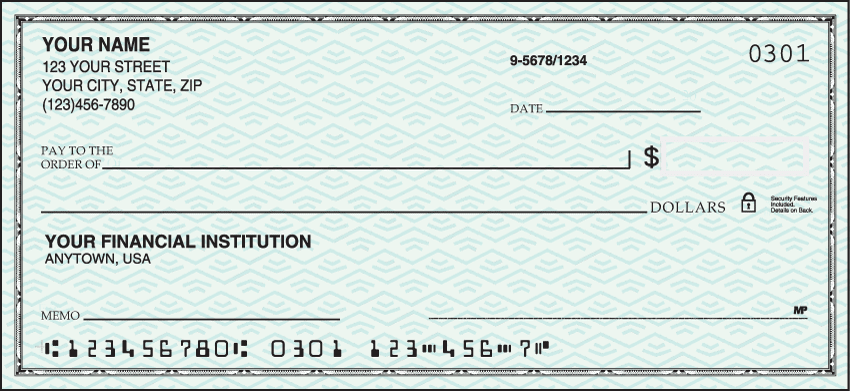What Is a Personal Check?

Personal checks are slips of paper issued by your bank that have the routing number of the bank and your account number. Checks are essentially written instructions to another financial institution or bank to pay a specified amount from the check writer’s bank account to the person or company listed as the payee on the checks. Sometimes, a check might not name a specific person or business, so anyone who makes the payment may be eligible to receive the funds.
Many checking accounts with traditional brick-and-mortar banks allow you to purchase personal checks that you use for payments. A few checking accounts are even able to provide free checks to account holders.
How to Write a Personal Check
Even though checks are decreasing as a payment method, however, many situations require payment via personal and value checks. Here are a few things to keep in mind if you are called upon to write a traditional paper check.
- Write your thoughts in black or blue ink.
- Write the current date onto the calendar line in the format month-day-year.
- The name of the payer should be added next after “Pay to the order of.”
- Inscribe the numeric amount of the check in the box by using the dollar symbol (e.g., “19.99).
- Find the value in the “Dollar amount” line, using cents as fractions (e.g., “Nineteen dollars and 99/100”).
- Your signature will appear on”Signature” line “Signature” line.
- Make a note of your payee’s “Memo” line in the lower left.
Where Can I Cash a Personal Check?
If you’ve got a personal check you want to cash out immediately the most efficient place to choose is a branch managed by the bank mentioned on the checks.
If the check is written from one of the bank’s account holders, the account has sufficient funds to cover the check, and you are the person named as the payee on the check, the lender or the bank is likely to make the payment on the spot. However, you may be subject to a charge if you don’t have a bank account at the bank.
You can also visit your bank to cash personal checks, however, there’s a chance that you’ll be unable to cash checks worth more than $200. Certain retail chains and supermarkets such as Walmart provide check cashing services, but you’ll have to pay expensive fees if choosing this method. If you don’t want the cash immediately, you can deposit the check in your account and it’ll be cleared within three to five business days.
What Is a Cashier’s Check?
A cashier’s cheque is a check that takes a portion of the bank’s funds rather than the account of the individual holder. It’s a kind of payment that guarantees that the person who receives it will be enough money to pay the cost of the check. But, the person who is requesting the cashier’s cheque must first provide the bank with enough cash to cover the value of the check.
Cashier checks offer payees the advantage of receiving their money rapidly and efficiently. That’s why they’re often used in major transactions including the purchase of a vehicle or house.
How to Get a Cashier’s Check
The only way to purchase a cashier’s check is via either a credit union or a bank in most cases, and you need an account with them to be able to obtain one. Certain online banks allow you to order a cashier’s check from your mobile or computer while traditional banks require you to go to an office. If you’re planning to visit in person Here’s hchecksow to go about it:
- Make sure you take the cash to pay the cashier’s checks to your bank or credit union or deposit enough funds into your account.
- Present a photo ID issued by a government agency as well as all the necessary information to fill out the form as well as the name of the recipient.
- When you’ve supplied the money as well as the name of the payee The bank will then print the check.
- Examine the details of the check and then keep the receipt so you can track its status.
Some banks charge a cost for up to 15 dollars for cashier’s cheque. Other banks offer cashier’s check as a free service to checking account customers.
